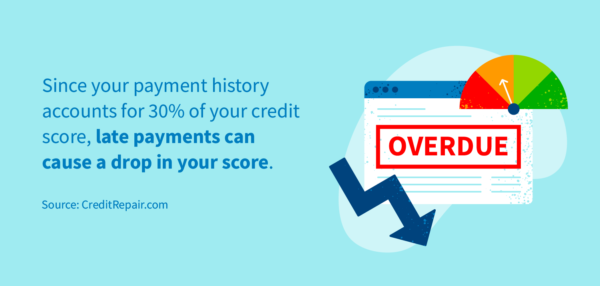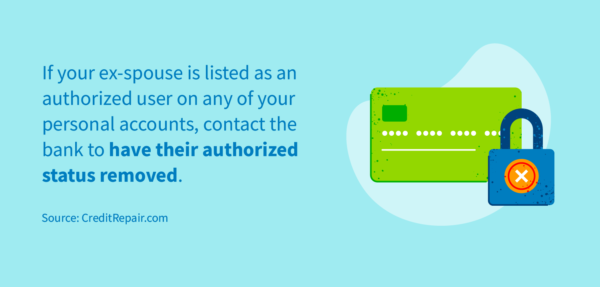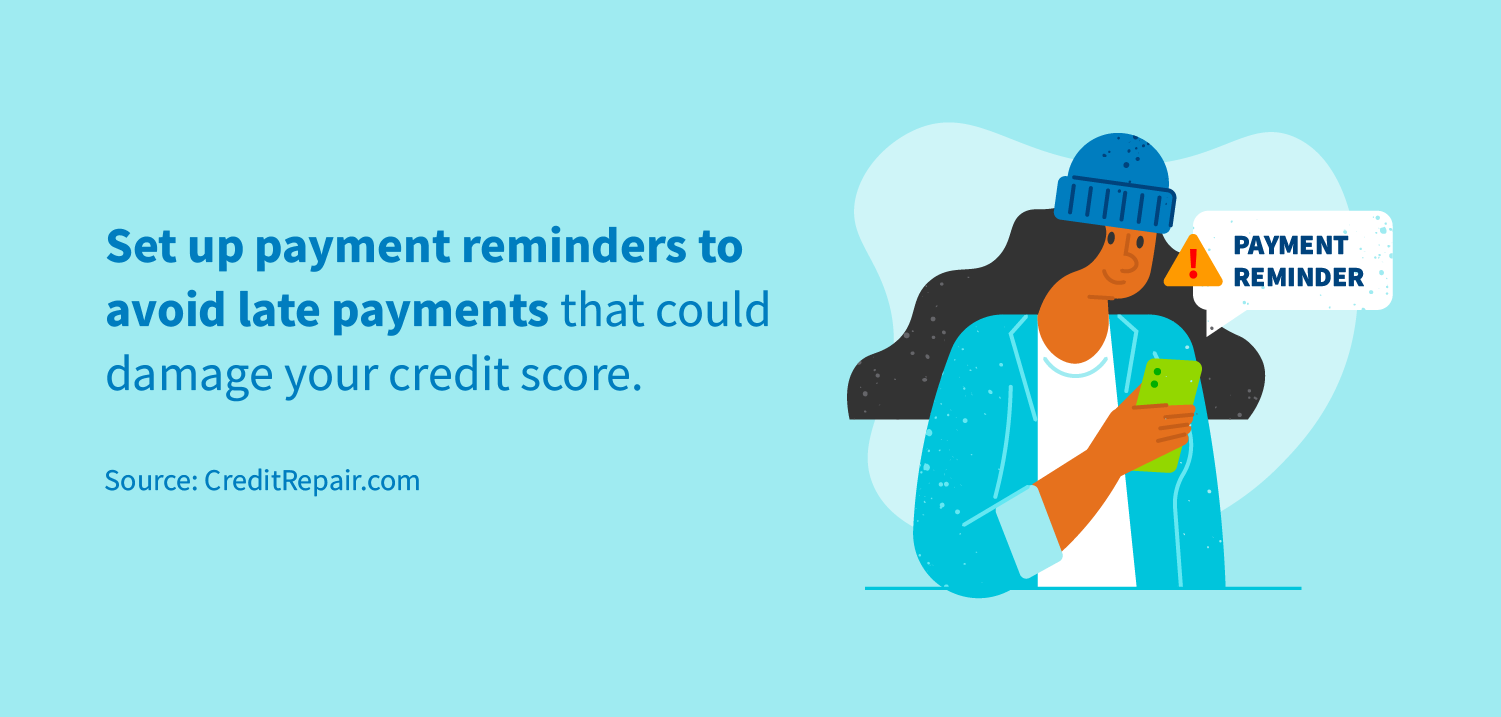
Disclosure regarding our editorial content standards.
The process of divorce is never an easy one—the emotional toll that comes with ending a marriage can significantly impact many areas of your life, whether that’s your living arrangements, your finances or—if you’re a parent—your children.
In the midst of all this, you might be wondering what a divorce means for your credit. While a divorce doesn’t directly affect your credit score, your credit can suffer as an indirect result of how you and your ex-spouse handle your finances following a divorce.
What happens to your credit after a divorce?
Changing your marital status doesn’t impact your credit score. But the big financial changes that come with a divorce can potentially result in a change to your score. Whether it’s because a lower overall income results in missed bill payments or because you wind up in debt once the proceedings are finished, there are a few things you should be aware of when it comes to what could happen to your credit following a divorce.
Joint accounts remain on your credit reports
If you have any joint credit accounts with your ex-spouse, they won’t automatically be split in two just because you get a divorce. Both you and your ex-spouse are still responsible for repaying the debt, and the account will still be reported on both of your credit reports.
You might be dealing with any or all of these types of joint accounts:
Joint mortgages: A mortgage can be one of the trickiest accounts to deal with. One option is to refinance the mortgage into the name of the spouse who is keeping the house if they can qualify for a loan as an individual. If neither of you can afford to take on the mortgage on your own, you may have no choice but to sell the home and split the profits.
Joint credit cards: It’s recommended that you settle all joint credit card debt before you finalize your divorce. This can be done either by paying off the joint accounts together or by dividing the debt between the two of you and transferring the balances to new credit cards in each of your names.
Joint auto loans: If you and your spouse share a joint auto loan, one of the best options is to refinance the loan into the name of the spouse who intends to keep the car. This way, the spouse who isn’t keeping the car won’t be affected by the activity on the account.
Divorce decrees won’t void lender contracts
During your divorce, the court will issue a divorce decree, which assigns the division of your marital assets and debt between you and your spouse. It dictates who is responsible for different debts, as well as any debts that may remain shared. The only issue is that divorce decrees don’t matter to creditors—they aren’t required to abide by them when it comes to debt collection.
This means that even if a judge declares your ex-spouse responsible for paying off a joint account, your credit is still on the line. If your ex-spouse either doesn’t pay or pays late, that negative information will show up on not only their credit report, but yours as well.
Ways a divorce could indirectly impact your credit score
Costly attorney fees, a change to your credit mix and age and an inability to keep up with your credit card payments are just a few of the potential indirect effects of a divorce. Take stock of some things you might have to face financially following a divorce.
The cost of divorce could set you back
The reality of divorce is that it’s not cheap—the average cost of a divorce is $12,900. It’s important to be aware of the associated fees and expenses you’ll need to pay for during court proceedings. Expenses will vary depending on various factors of your divorce, but the costs can add up quickly. These factors can include:
- Your state
- The cost of your divorce attorney
- Whether or not you’re dealing with child support or child custody
- Whether or not you’re required to pay alimony, a court-ordered obligation to provide financial support to your ex-spouse after a divorce (keep in mind that any late alimony payments will be reflected on your credit report and potentially damage your credit score)
- Whether or not you take your divorce to trial in court
Joint credit accounts could damage your score
As mentioned before, a divorce won’t absolve you of your responsibility to make payments on any joint credit accounts you have with your ex-spouse. Even if you do your due diligence and make timely payments, any missed payments made by your ex-spouse will still be tied to your name. All activity on joint credit accounts will continue to be reported to the credit bureaus and show up on your credit report, whether the missed payments were your fault or not. Since payment history accounts for 30 percent of your credit score, any late payments will cause a drop in your score.

You might be unable to pay your bills
Divorce can be costly, and if you end up having to shell out significant amounts of money to fund your divorce proceedings, you may find yourself with new debt that you weren’t prepared for. Additionally, if your ex-spouse was the primary breadwinner, your income as an individual may not be enough to cover all of your typical expenses.
If your reduced income as a newly single individual doesn’t allow you to keep up with your usual bill payments, you may find yourself missing payments. Late payments will more than likely cause a drop in your credit score.
Your credit utilization could go up
Even if you manage to make your payments on time every month, your reduced income as a single person could cause you to rely more heavily on credit cards to fund your lifestyle. Another factor in your credit score is your credit utilization ratio, or the amount of credit borrowed compared to your maximum credit limit.
If you’re supplementing your expenses with credit cards, you could end up using too much of your credit and causing your credit utilization ratio to increase. This can damage your credit score if you aren’t careful with how much credit you’re borrowing.
Your credit age could change
Another factor in your credit score is your credit age, which accounts for 15 percent of your score. Credit age refers to the length of your credit history, and credit bureaus like to see a higher credit age because it provides a better view of your overall credit history and behavior.
If you end up refinancing debts or taking out new loans without your ex-spouse’s name attached to them, you’ll end up with a lower credit age as a result. This could cause your credit to take a hit if you previously had joint accounts that are no longer part of your credit history.
Your credit mix could change
Your credit mix refers to the different forms of credit accounts tied to your names, such as credit cards, auto loans or a mortgage. Your credit mix accounts for 10 percent of your credit score, and credit bureaus favor those with a higher mix of credit accounts if you manage them all responsibly.
Following a divorce, you may find yourself with a lower credit mix if your restructured credit accounts leave you with fewer accounts tied to your name than when you were married. While the impact of credit mix on your overall credit score can be minimal, the financial strain associated with divorce could leave you needing all the help you can get to keep a good score.
How to protect your credit during a divorce
Everyone’s financial situation will look different following a divorce, but ultimately, only you can take action in protecting your credit. There are steps you can take to safeguard your credit and minimize the damage to your score if you’re dealing with the fallout of a divorce.
1. Establish a civil relationship during divorce
While we understand this isn’t always possible or within your realm of control, establishing a civil relationship with your ex-spouse throughout the divorce and beyond can remove much of the burden in dealing with your finances. Maintaining a strong financial standing moving forward will be far easier if you can find a way to work with your ex-spouse productively and amicably, and arrive at solutions that are in everyone’s best interests.
Unfortunately, this can’t always be the case, and you may be dealing with a vindictive ex-spouse who has no interest in partnering with you and who may actually try to intentionally make the proceedings more difficult. If this is your situation, it’s imperative that you take every measure you can to protect your credit from being burned.
2. Close joint accounts
Ideally, you and your spouse will be on good enough terms to come to an agreement about how your joint accounts will be handled. That means you could close all joint accounts together, split the funds and open new accounts in your own names.
If that’s not possible, you may want to consider contacting a divorce attorney to see what legal actions can be taken to protect your credit from harm. You can still get the ball rolling by making a request to close the account on your end and completing the associated paperwork, but a joint account can’t be fully closed without both parties’ consent.
3. Contact your creditor
If you’re unable to coordinate with your ex-spouse to close any joint accounts you both hold, contact your creditor and inform them of your divorce. You can ask to have your name removed from the account and inform them that you don’t want to be held responsible for any future charges. Keep in mind that you’ll still be liable for any charges up until that point, at least when it comes to what’s documented on your credit report.
It’s a good idea to document all communications and exchanges you make with your creditors. If you spoke with your creditor over the phone, go a step further and also send your notice in writing for further protection. Take care in keeping all documents, dates and proof of communication organized so you can refer to them in the future if needed.
4. Freeze your accounts
If you’re worried your ex-spouse may withdraw all the funds from any joint accounts you share, you can contact your bank to inform them of your divorce and request a freeze on the account. This will prohibit both of you from making any withdrawals or initiating any other activity on the account, and it can remain frozen until a resolution is reached.
If you do find that your ex-spouse has drained an account before you could take action, it’s likely that the court will require you to be reimbursed. However, it could take a long time for that money to come in, so it’s best to avoid the risk and take protective measures as soon as you can.
5. Remove authorized user statuses from credit cards
If your ex-spouse is listed as an authorized user on any of your personal credit accounts, contact the bank to have their authorized user status removed. This is critical for your protection, since an authorized user can spend the funds of that account without being held responsible for them. You want to avoid debt being racked up in your name that you’ll ultimately have to answer to.

6. Review your credit report
If you’ve been married for many years, there may be accounts listed on your credit report you’ve forgotten about that you should address. Even if your divorce isn’t final yet, it’s wise to contact any of the three major credit bureaus to get a copy of your report. Reviewing your credit report can give you a detailed look at your full credit history and help you identify any individual and joint accounts.
Joint accounts and debts could include any loans or credit cards that you and your spouse acquired together during your marriage, while individual loans or accounts could be those that you opened up before you were married. You’ll also be able to view which accounts have you listed as an authorized user, enabling you to remove your authorized user status from those accounts as soon as possible.
7. Research if your state follows community property or equitable distribution rules
Some states have a community property rule for divorce. Community property states require assets or debts acquired during a marriage to be equally owned by both parties. This means that if your partner acquired debt during your marriage, you might be legally responsible for paying half of it.
In comparison, equitable distribution states rule in divorce that assets and debts should be divided fairly, not just down the middle. A fair distribution of debts and assets could be based on income and who incurred the debts or assets.
Knowing if you live in a community property or equitable distribution state can help you understand ahead of time what your division of assets and debts will likely look like.
8. Be mindful of the consequences of missed child support payments
When you have children, a divorce can come with child support payments. When you miss a child support payment, it can be added to your credit report as a negative item and lower your credit score. Missed child support payments can stay on your credit report for up to seven years.
9. Remember that the credit limit on your credit cards may decrease
Many credit cards approve an individual’s credit limit based on household income. So, your credit limit may have been based on your and your partner’s combined incomes. When you divorce and become a single-income household, your credit card limit may decrease to match. This is especially relevant if you’re an authorized user or have a joint credit card.
If your credit limit does decrease, keep your credit utilization in mind. Credit utilization is the credit available to you versus the credit you use every month. In general, you need to keep utilization below 30 percent to avoid negatively impacting your credit score. For example, if you have a credit card with a $1,000 limit, you should try to avoid spending more than $300 a month on that card.
If you receive a notice that your credit card limit has decreased, do a quick calculation on what 30 percent of that limit is and adjust your spending accordingly.
Moving forward: rebuilding your credit after divorce
If your credit has taken a hit following a divorce, it’s crucial that you understand what you can do to proactively rebuild your credit going forward. There are plenty of ways you can make that happen—the key is to not let your financial situation sit on the back burner while your credit score is hurting.
1. Create a post-divorce budget
Adjusting to life as a newly single person can be overwhelming, especially when it comes to your finances. You can mitigate the overwhelming feelings and save yourself trouble by taking the time to create a post-divorce budget that reflects your new lifestyle. You might now be living on less income than you were when you were married, so it’s important to adjust your budget to reflect such changes to avoid taking on more debt or causing damage to your credit score.
Review your current financial situation and make any necessary changes to your budget. It’s likely that you’ll need to downgrade some of your prior expenses and cut out unnecessary spending if it means not having to take on more debt. You may want to consider increasing your income by looking for side jobs or other means of work to fund yourself going forward.
2. Stay on top of payments
It’s easy to let bill payments fall to the wayside when dealing with the aftermath of a divorce, but staying on top of those payments is critical for building your credit score. If you haven’t already, set up payment reminders or automatic payments to ensure you don’t rack up interest fees from late payments and cause a drop in your credit score.

You might find it beneficial to seek help from a financial advisor if you’re overwhelmed with managing your bills, debts and credit accounts during this time. They can walk you through different options that may ease some of the stress you’re facing in managing your finances and maintaining a solid credit standing.
3. Review your credit report often
Just because your divorce is finalized doesn’t mean you shouldn’t continue to carefully monitor your credit report. It’s important to review it regularly to ensure you catch any errors or problems that arise down the line that could be doing damage to your credit score.
You’re entitled to one free copy of your credit report per year from each of the three credit bureaus (Experian®, TransUnion® and Equifax®) which can be obtained on AnnualCreditReport.com. If you feel like you don’t have the bandwidth to carefully review your credit report regularly, you can hire credit advisors who have experience finding and removing inaccurate information on credit reports.
4. Use credit cards wisely
It can be tempting to lean more heavily on credit cards to fund your lifestyle after you’ve gone through a divorce. Whether it’s because you can’t fully cover your usual expenses as a single earner or you fall into emotional spending habits as you cope with the divorce, failing to regulate your credit card usage can seriously damage your credit score.
In order to protect your credit score from dropping, it’s important to stay on top of how much you’re borrowing and keep up with all your payments. Avoid borrowing more than you need to so you don’t increase your credit utilization ratio, and do your best to stick to your budget and gradually improve your credit over time.
Going through a divorce is difficult for a number of reasons, and it’s easy to see your credit score take a hit as the process unfolds. If you’re experiencing credit damage as a result of a divorce, the good news is that it can be rebuilt with time and effort.
Take care to protect your credit during a divorce to the best of your ability, and remember that you don’t have to deal with a damaged credit score forever if you take the proper steps in rebuilding your score. You also don’t have to go through the process alone—enlisting the help of a professional credit advisor, like those at CreditRepair.com—could remove some stress from the process and help you get back on your feet sooner.
Questions about credit repair?
Chat with an expert: 1-800-255-0263






